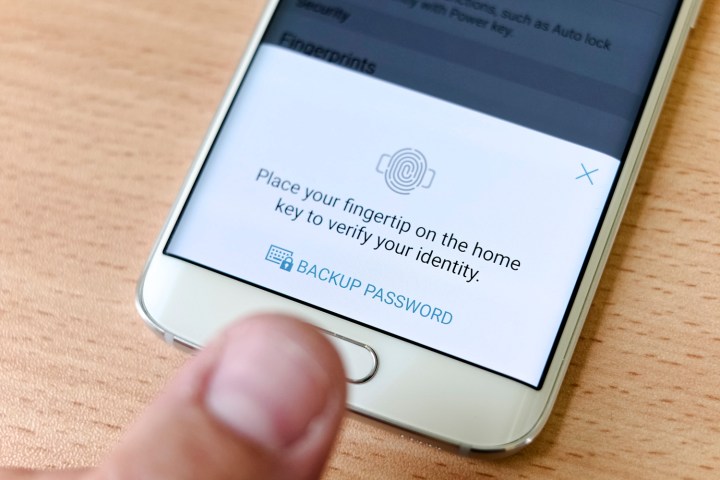
(in)Secure is a weekly column that dives into the rapidly escalating topic of cybersecurity.
Passwords are often cited as the biggest problem with modern digital security. They’re supposed to be complicated, unique, and ever changing, and yet few follow through with those tenets of strong password protections. That leads to reuse attacks or brute force hacks, which is why many security researchers are pushing to eliminate passwords altogether. Yet not everyone believes the security issue of our time is passwords. For some, it’s how those passwords are stored.
Want to stop hackers? Don’t give them something to hack
George Avetisov, the CEO of Hypr, believes the biggest problem facing modern digital security is password centralization. He points out that a secure password is pointless if it can be stolen when a company that maintains login information is hacked. Instead, Hypr wants to store login credentials – whatever they are – on the end user’s device.
When your bank gets hacked, you don’t lose your house keys because they’re in your pocket.
“When you authenticate through Hypr, your credentials are authenticated on your device locally and they are used to send a token to the bank, which is then approved,” he explained.
That, he says, makes companies far less attractive to hackers, as they can’t gain information on all users at the same time. It also clears up the problem of password reuse, since hackers can’t take stolen credentials and use them to breach another service.
“The analogy I like to think of is that when your bank gets hacked, you don’t lose your house keys because they’re in your pocket,” Avetisov told Digital Trends. “The only way for someone to steal them is to physically remove them from your pocket. That’s what decentralization is. It turns your password, your credentials, into something more like your house keys and less like your current password.”
While Avetisov is bullish about the future of security through decentralization, he doesn’t believe the average consumer will ever learn to take password security seriously. That’s why it’s important for companies to do something about preventing password reuse by removing the ability to attack everyone at the same time. That doesn’t solve reuse itself but ensures reuse attacks can’t be perpetrated on a mass scale.
A world beyond passwords means a world of convenience
Companies like Trusona, on the other hand, would rather focus on moving people beyond passwords entirely. That seems like a viable goal: The public likes the idea of logging into sites and services without passwords. In a recent research report Trusona published, 70 percent of participants opted to use a password-free login system with multi-factor authentication. That group enjoyed a 99 percent login success rate during the study, while those who used passwords saw a success rate of just 56 percent – often requiring reminders to help them login.
Although a multi-factor authentication system is more secure, Trusona believes the choice is often one of convenience, which could be the key to moving to a more secure, password-free future.
“The most successful authentication systems lead with user experience, but as a means for better security.”
“There’s a very real desire to get rid of passwords,” Trusona chief design officer Kevin Goldman told Digital Trends. “While some of that is rooted in anxiety around the security of information online, it’s mostly because of password rage. Consumers default to convenience, and when things aren’t easy to use, they find a workaround. It’s why most reuse passwords and why personal security practices are so sloppy.”
While convenience might be the key to moving consumers beyond passwords, that goes hand in hand with improving the security of the authentication system, too.
“The most successful authentication systems lead with user experience, but as a means for better security,” Trusona CEO Ori Eisen said. “The most widely adopted authentication system [of the future] will be the one that’s easiest to use.”
Although Eisen told us he’s not as sold on the idea of decentralized login credentials aas Hypr’s Avetisov, they both agree smartphones will hold the key to future improvements in our digital security. Where Avetisov believes smartphones should hold login credentials – acting as a form of multi-factor authentication as well as killing centralized password databases – Eisen believes they can be used for a mixture of login possibilities. Whether it’s in taking a picture of yourself holding photo ID, as TruSona uses in some of its more intense fraud prevention strategies, or through biometrics.
The password is dead, but it’s collateral damage
Both men see passwords as a dying technology. While Avetisov sees potential in strong passwords, he and Eisen are both keenly aware of how unpopular password logins are becoming. “The mainstream adoption of biometrics is effectively killing passwords as a primary authenticator and as a user experience,” Avetisov said.

Eisen echoed his sentiments, claiming that the death of the password as the primary form of authentication wasn’t “a matter of if, it’s a matter of when.” Whether for convenience sake or to further improve our own personal security, the influence of passwords is likely to wane significantly in the years to come. While Eisen wants to accelerate that, Avetisov sees it as a byproduct of authentication evolution.
“Our goal is not to kill the password,” Avetisov said. “It is to kill the problem caused by passwords.”
Updated 06/27/18 to normalize Trusona capitalization.
Editors' Recommendations
- Google just made this vital Gmail security tool completely free
- San Francisco won the battle, but the war on facial-recognition has just begun




